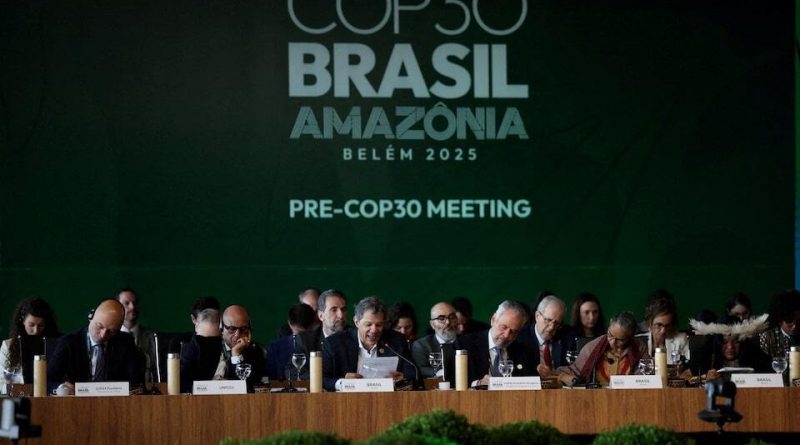Saudi Forum Champions “Sufficiency Before Efficiency” at UN Climate Conference in Brazil
Riyadh – The Saudi Green Building Forum will represent the Kingdom at the upcoming UN Climate Change Conference in Belem, Brazil, from November 10 to 21, 2025, marking another step in Saudi Arabia’s global environmental leadership.
The forum’s participation reflects the country’s dedication to sustainability, green innovation, renewable energy, climate action, and responsible urban development, all guided by the goals of Vision 2030.
As a national institution with consultative status at the UN Economic and Social Council and accreditation from the UN Framework Convention on Climate Change, the forum continues to strengthen Saudi Arabia’s presence in international sustainability discussions.
This year, the forum will highlight the groundbreaking concept of “Sufficiency Before Efficiency,” a principle that emphasizes reducing resource demand at the source before focusing on improving efficiency.
The approach encourages minimizing consumption, conserving resources, and promoting balanced growth. By tackling overuse and waste at its origin, the initiative supports climate justice, environmental protection, and economic stability.
The Saudi forum’s participation underscores its mission to advance green transformation, clean energy, and circular economy practices that ensure harmony between human needs and nature’s capacity.
According to Faisal Al-Fadl, secretary-general of the forum, the concept of sufficiency is not about restricting development or limiting growth.
Instead, it’s about achieving balance between progress and planetary boundaries, ensuring that human advancement aligns with the Earth’s ability to sustain life.
This forward-thinking perspective promotes long-term sustainability, social equity, and environmental harmony.
By focusing on sufficiency-based strategies, the Saudi Green Building Forum is helping shape a new era of sustainable policies that prioritize mindful consumption, resource efficiency, and eco-friendly innovation.
At the Brazil conference, the forum will collaborate with international organizations, public and private sectors, and partner countries to develop global sufficiency indicators and policy frameworks.
This cooperation aims to accelerate progress toward the UN Sustainable Development Goals, promote low-carbon cities, and encourage nations to adopt sustainable lifestyles.
The initiative showcases Saudi Arabia’s leadership in green policy innovation, renewable resource management, and biodiversity protection.
The Saudi Green Building Forum, one of the leading nongovernmental organizations in the Arab region, works closely with municipalities and housing authorities on environmental initiatives that include combating desertification, enhancing climate monitoring, and protecting biodiversity through the Saaf framework.
Its work emphasizes localizing green building standards, promoting the circular economy, and reducing environmental impact through smart design, clean technologies, and community participation.
Inspired by Vision 2030 and Saudi Arabia’s successful sustainability initiatives, the forum’s efforts contribute significantly to global environmental progress.
By promoting sufficiency before efficiency, it is encouraging a cultural and structural shift toward sustainability, resilience, and responsible growth.
The forum’s presence at the UN conference highlights how Saudi expertise is influencing global sustainability practices and guiding the world toward greener, more equitable development.
Through this participation, the Saudi Green Building Forum reaffirms the Kingdom’s position as a global advocate for climate action, sustainable innovation, and green transformation.
Its mission—to balance economic growth with ecological preservation—demonstrates that progress and environmental care can coexist.
The conference in Brazil will serve as a powerful platform for Saudi Arabia to share its experience, leadership, and commitment to shaping a sustainable future rooted in sufficiency, responsibility, and balance.



